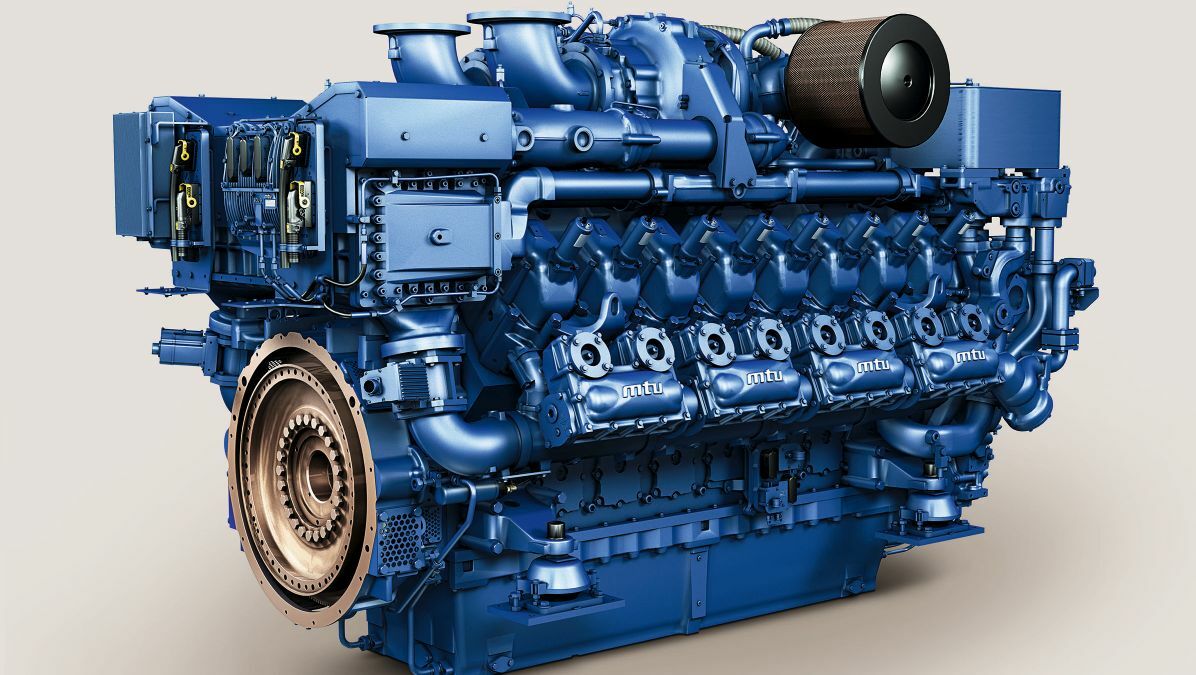Engines For Africa: Your Trusted Partner for Motor Needs
Engines For Africa: Your Trusted Partner for Motor Needs
Blog Article
A Complete Overview to Picking the Right Engine for Your Task
Selecting the proper engine for your task is a critical decision that can significantly affect its overall success. It is necessary to diligently define your project requires, review performance needs, and take into consideration user-friendliness along with other vital factors. In addition, recognizing the community support readily available and scrutinizing cost implications can even more fine-tune your selection. Each of these components plays a crucial duty in ensuring that your chosen engine not only meets immediate objectives however also aligns with long-term desires. As we explore these considerations, you may locate that the subtleties of each element expose more than originally prepared for.
Specify Your Project Demands
Defining your job requires is an important step in picking the ideal engine for effective implementation. A thorough understanding of your job's purposes will certainly assist you in recognizing the attributes and capabilities needed from an engine. Begin by laying out the range of your job, including the wanted functionality, target market, and the details end results you intend to achieve.
Following, think about the technical needs that align with your project goals. This includes reviewing the compatibility of the engine with existing systems, in addition to the programs languages and structures that will certainly be made use of. In addition, evaluate the level of scalability required to suit future development or adjustments sought after.
Spending plan restraints additionally play a crucial role in defining your project needs. Develop a clear economic structure to lead your decision-making process, guaranteeing that the engine picked fits within your spending plan while offering the necessary capability.
Evaluate Efficiency Requirements

Engines that sustain straight scaling are often more effective for bigger applications. Additionally, examine the engine's performance under various conditions, such as peak use situations, to ensure it fulfills your integrity requirements.
Take Into Consideration Convenience of Usage
While technical specifications are important, the simplicity of use of an engine can dramatically affect the growth procedure and overall project success. An user-friendly user interface, clear paperwork, and streamlined operations can substantially reduce the understanding contour for designers, allowing them to concentrate on creativity and problem-solving rather than coming to grips with complicated tools.
When evaluating an engine's ease of use, take into consideration the onboarding experience. A well-structured introduction, full with tutorials and example tasks, can help with a smoother transition for new users. Furthermore, the clearness and comprehensiveness of the engine's documents play a vital role; detailed overviews and API references can equip designers to fix and implement attributes efficiently.
One more Continue aspect to think about is the engine's personalization abilities. An engine that permits easy alterations can be a lot more straightforward, as developers can customize it to fit their certain needs without substantial trouble. Analyze the process integration with tools and platforms you currently make use of. A natural ecosystem can enhance efficiency and reduce friction throughout the advancement process. Inevitably, picking an engine that prioritizes convenience of usage can result in a more effective and satisfying growth experience.
Assess Area and Support
The toughness of an engine's neighborhood and support network can greatly affect a designer's experience and success. When examining an engine, think about the size and activity degree of its area.
In addition, review the schedule of main support channels. Trustworthy documents, responsive customer assistance, and routine updates are essential for addressing technological issues and maintaining your project on course. Engines For Africa. Active communities likewise foster partnership, giving chances for networking and comments, which can be invaluable, especially for independent developers or tiny teams
Additionally, investigate the existence of community-run home occasions, such as hackathons or meetups. These celebrations can enhance your understanding of the engine while linking you with possible collaborators and knowledgeable users. In summary, a robust area and support system not only enhance development yet additionally develop a setting for discovering and innovation, eventually enhancing the chance of your project's success.
Contrast Price and Licensing Choices
Budget plan considerations play a critical function in picking the right engine for your task, as the expense and licensing options can substantially affect both short-term expenses and long-term practicality. Engines For Africa. Various engines use varying pricing frameworks, which can include single acquisition costs, subscription designs, or revenue-sharing contracts based upon your task's revenues

Certifying options likewise vary dramatically. Some engines are open-source, offering flexibility and community-driven support, while others may require exclusive licenses that limit usage and distribution. Comprehending the implications of each licensing design is vital, as it impacts ownership legal rights, future scalability, and potential lawful responsibilities.
Conclusion
Finally, picking the proper engine for a task requires a detailed analysis of specified job needs, performance needs, ease of use, area assistance, and expense factors to consider. By methodically addressing these essential elements, decision-makers can make sure positioning with both future and current task needs. An educated selection ultimately improves the chance of task success, enabling efficient source allocation and making best use of prospective outcomes within the specified budgetary restrictions.
Choosing the suitable engine for your task is a critical choice that can substantially impact its general success.Specifying your job requires is a crucial step in choosing the ideal engine for successful application. A detailed understanding of your project's objectives will assist you in identifying the attributes and capacities called for from an engine.When you have a clear understanding of your project needs, the following step is to assess the performance demands of the engine.In conclusion, selecting the appropriate engine for a task necessitates a complete evaluation of specified task requirements, performance requirements, ease of use, community support, and price considerations.
Report this page